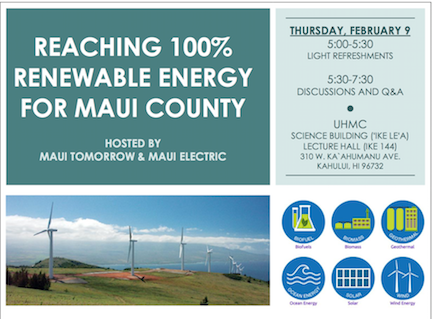By Henry Curtis from Disappeared News
What is the absolute cheapest type of energy found in Hawai`i?
What type of energy production produces no greenhouse gases and has no environmental or cultural impact?
The answer is curtailed energy.
Hawai`i Wind Farms often can produce far more power at night than the utility is willing to accept onto the grid (curtailment).
At other times the utility will accept only part of the wind energy produced (partial curtailment).
In Hawai`i, wind farms are curtailed 20-40% of the time.
Picture the Opportunity. The wind farm is already built. It is already operating. It is capable of producing electricity. But the utility will not buy the electricity.
The obvious answer is that the wind company should use curtailed and partially curtailed wind energy to generate hydrogen for transportation and/or ammonia for fertilizer.
But they can’t.
The utility contract with wind energy companies forbid them from third party sales.
HECO’s regulatory filing with the PUC (docket 2009-0176) for approval of their contract with First Wind Hawaii’s Kahuku Power states: “From time to time, Hawaiian Electric will require Kahuku Power to temporarily curtail deliveries of energy. … Kahuku Power will not sell energy from Kahuku Power’s Wind Farm to any third party, without the prior written consent of Hawaiian Electric.”
The only exception to this rule is Aina Koa Pono where the utility is asking the Public Utilities Commission to force HECO ratepayers to pay $25 million a year for 20 years to subsidize biofuel production on the Big Island to power HELCO’s Keahole Generation Station.
Aina Koa Pono will make byproducts on the side and sell them. The State has not asked Aina Koa Pono how lucrative their sales will be, while their biofuel is being subsidized by ratepayers.



Comment(1)-
Maui Tomorrow says
August 31, 2011 at 9:12 amAppears that the whole utility structure we have set up in Hawaii encourages HECO NOT to cut costs and gets in the way of reasonable paths to energy efficiency and lowering our electric costs.